Editor's note: Liu Yu is a senior photojournalist from Xinhua News Agency and a member of China Photographers Association (CPA). In late January, he was assigned by CPA to take photos of frontline medical health workers in Wuhan.
With a first somersault, Mr. Ma plunges into the East Lake in Wuhan. He used to swim there with friends, even in the freezing spells of winters. After three months of staying inside, the swimmers are itching to come back. Wuhan, the city, freshly shaken awake from its virus nightmare, is regaining vitality. Public life is returning, tourist sites reopened, citizens are seen hanging out on once deserted streets, some of them in traditional Chinese clothing.
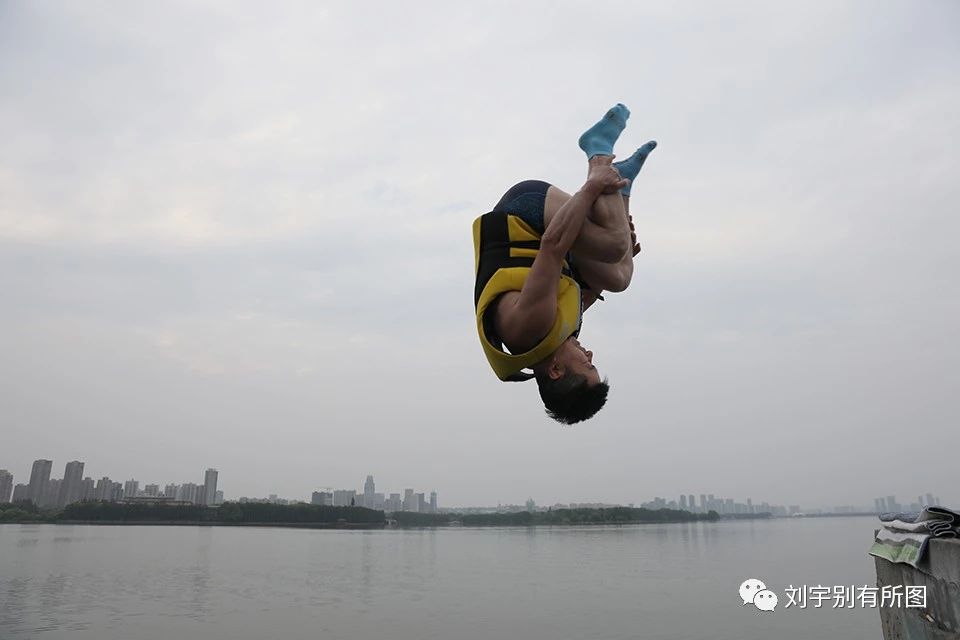
Ma does somersault before plunging into the river
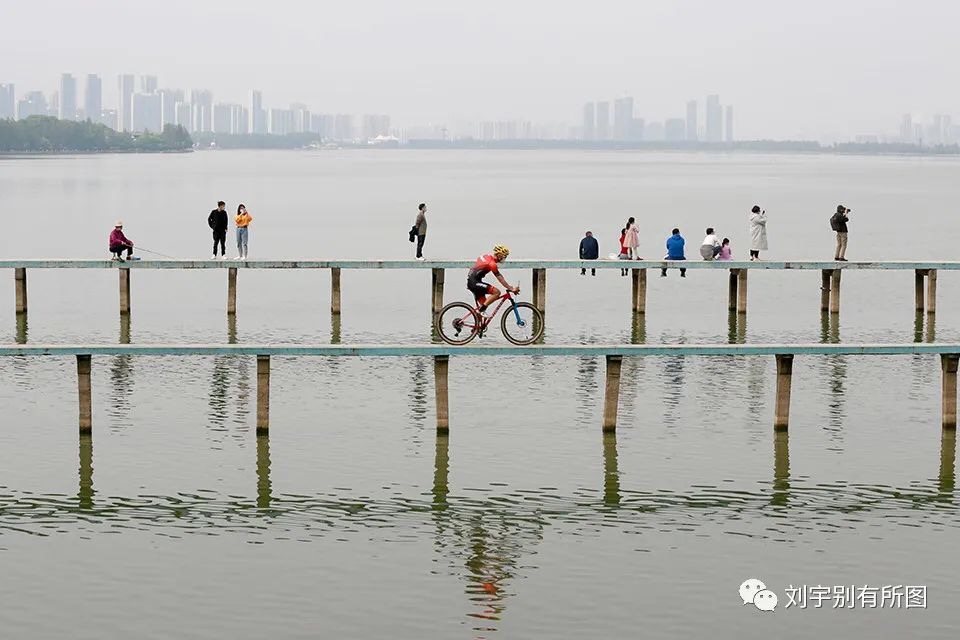
Wuhan citizens enjoy breeze on a bridge
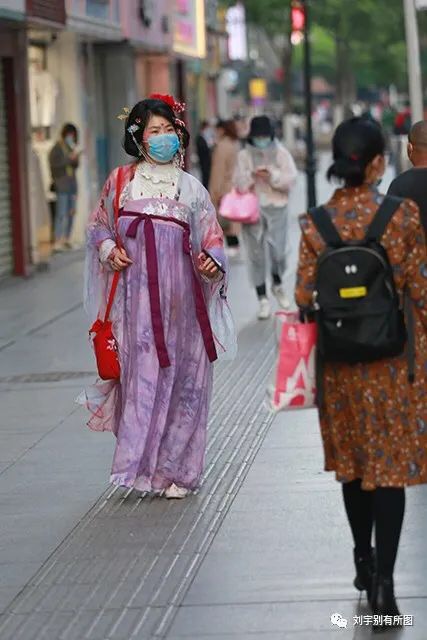
A girl wears Chinese traditional clothing
To millions of lives in Wuhan, COVID-19 has never been the only health threat around. So hospitals must be getting back on track. With their COVID-19 patients fully discharged, some hospitals are accepting an increasing number of other cases. Aside from handling diseases, they also welcome lives. Newborns that recently came to the world are going to have their first days carved into history. If the birth of a child requires the mother to suffer, then the hardships must have doubled for those giving birth amid the outbreak. In Wuhan Children's Hospital, I came across Chen Yu, a nurse there, and he was bathing a three-day-old baby. Those infants are born with a brand new city emerging anew from nirvana. And they are going strong together.
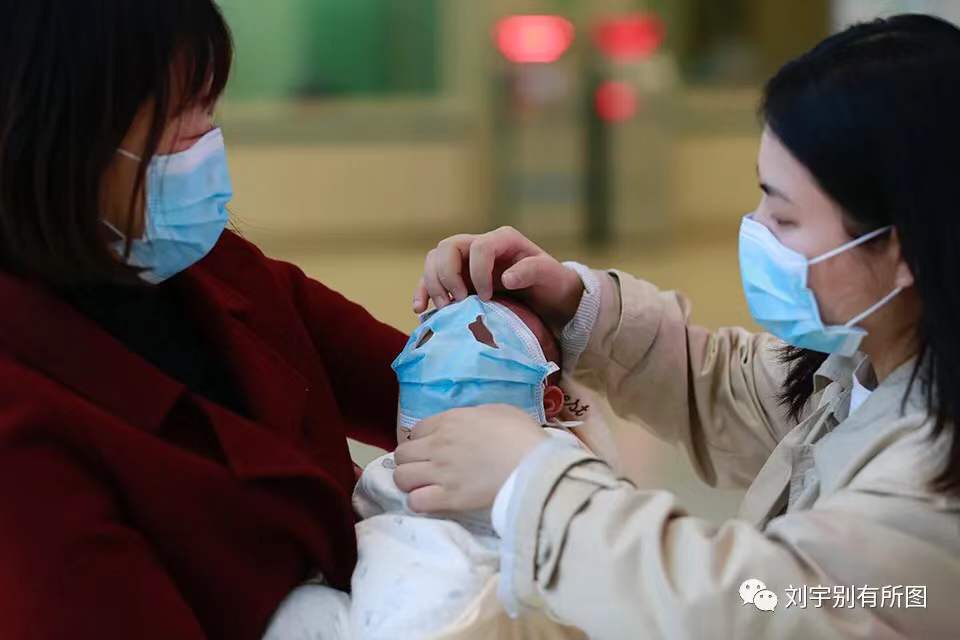
A young mom helps her baby put on a mask
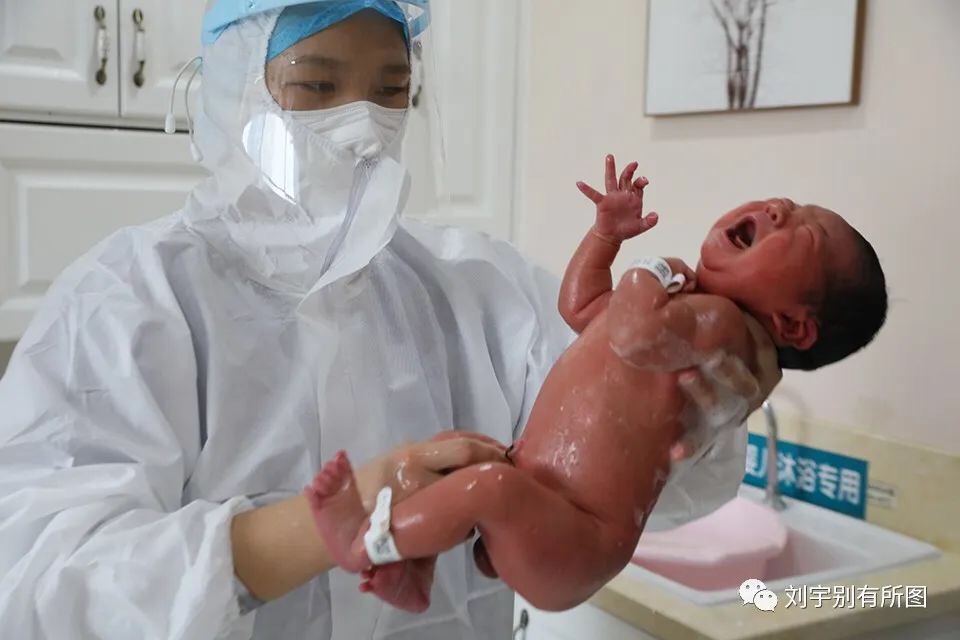
Chen Yu baths a three-day-old baby at Wuhan Children's Hospital
It has come to the time for goodbyes. The medical team from Peking Union College Hospital is among the last two to leave the city. Among the 23 medical teams assisting treatment at Tongji Hospital, they came there first and had the most significant number of team members. You turned our despair into hope, said a nurse at Tongji Hospital, hugging her colleague from Beijing tightly. Two days after the team took flight, the military medical team also left quietly. Without flowers, thankful clapping or farewell ceremonies, the medical members arrived at the airport in the early morning, when the city was still in its hard-fought peaceful slumber. Accompanied by "Farewell My Soldiers," a Chinese song from the early 20th century, the soldiers of our time embarked on their trip back home. Saluting the heroes, senior military officials stood at the entrance to see them off.
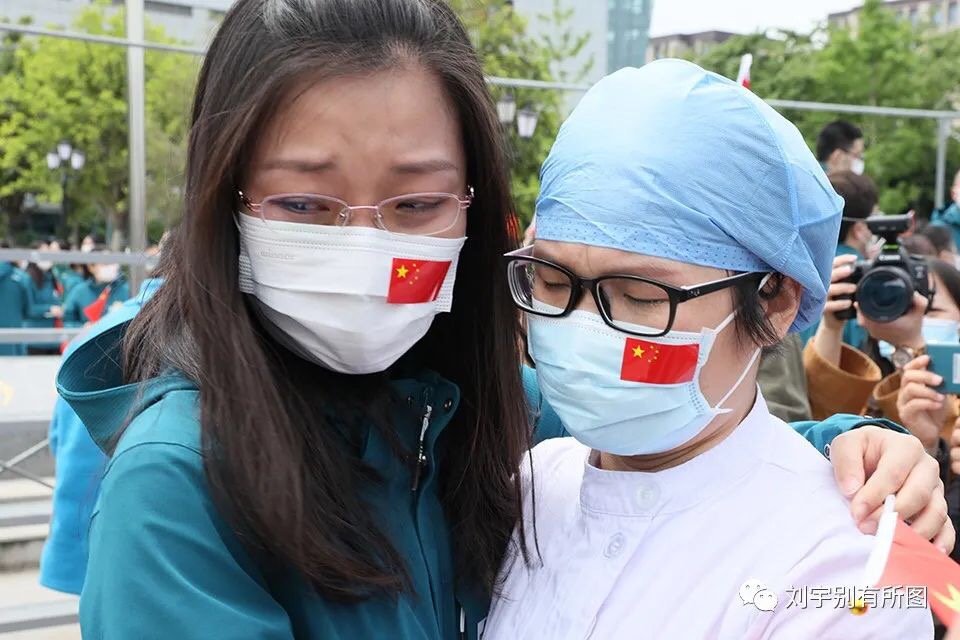 Medical worker from Peking Union College Hospital hugging goodbye with her co-woker at Tongji Hospital
Medical worker from Peking Union College Hospital hugging goodbye with her co-woker at Tongji Hospital
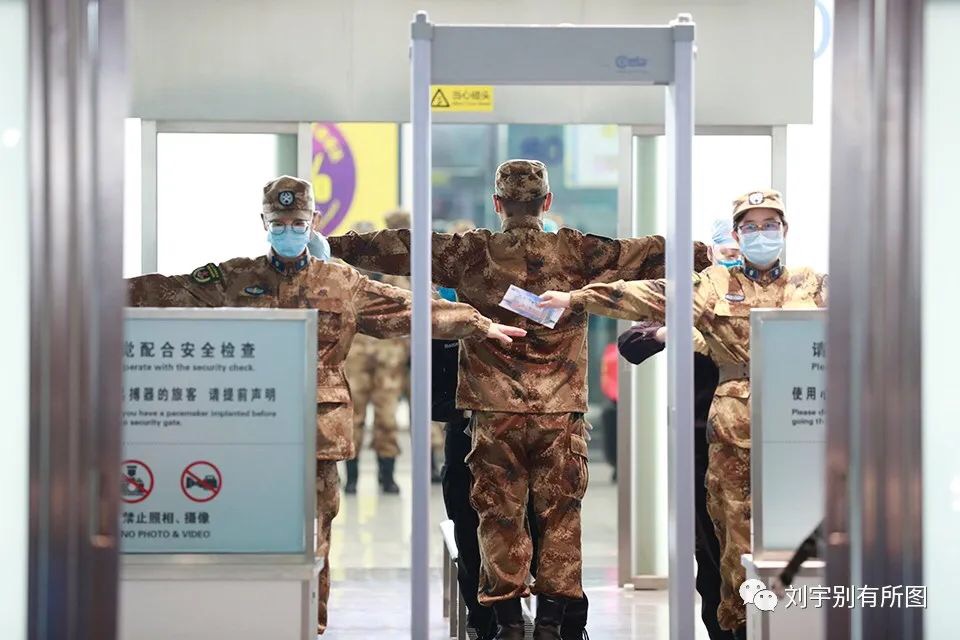
Members of the military medical team goes through security checks
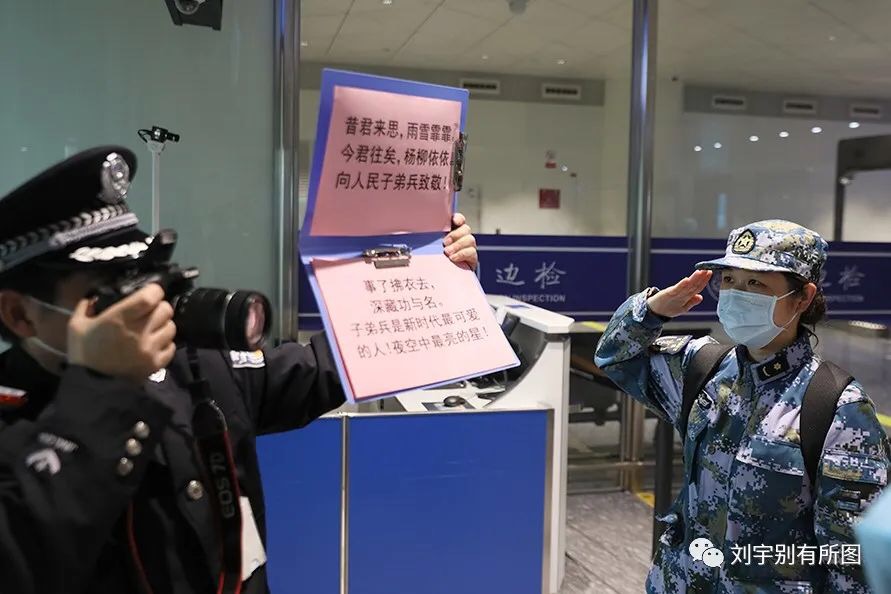
The last medical worker passing security checks makes a salute
Also returning home are recovered patients of the virus. Grey-haired Mr. Tian, accompanied by a retired soldier, arrived at the housing estate where he lives. Carrying vast pieces of luggage, it took him only six minutes to shuffle home from the entrance, yet it had been 60 days since he last left there. Quite unexpectedly, his homecoming wasn't greeted with welcoming hugs. His wife immediately carried out disinfection procedures with ultraviolet equipment. "Go take a shower!" she said. I tried to explain that recovered patients are just like everyone else. "Really?" she doubted. She would like to be more careful, worrying her husband could get the virus again.
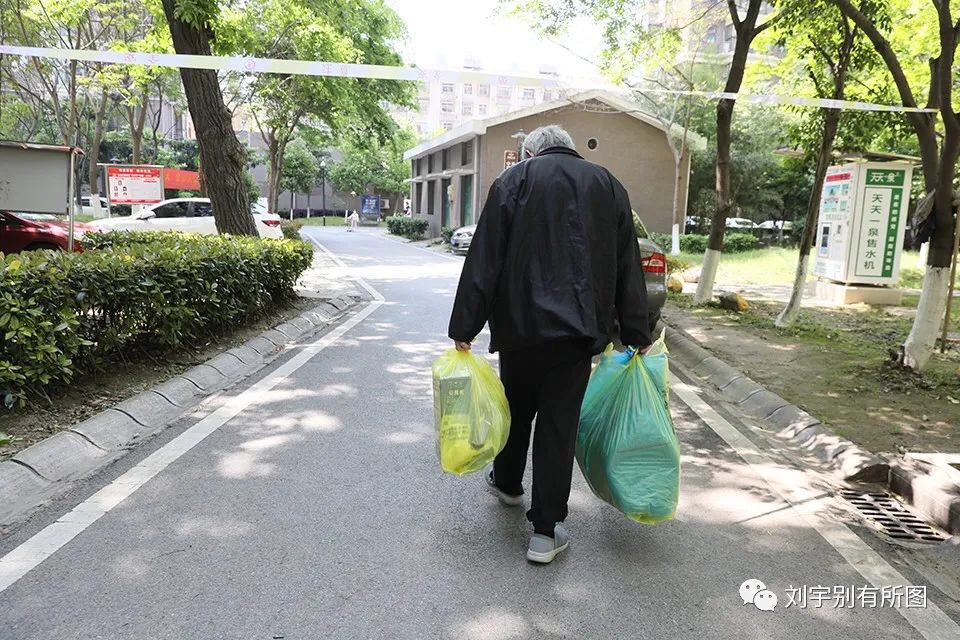
Tian on his way home
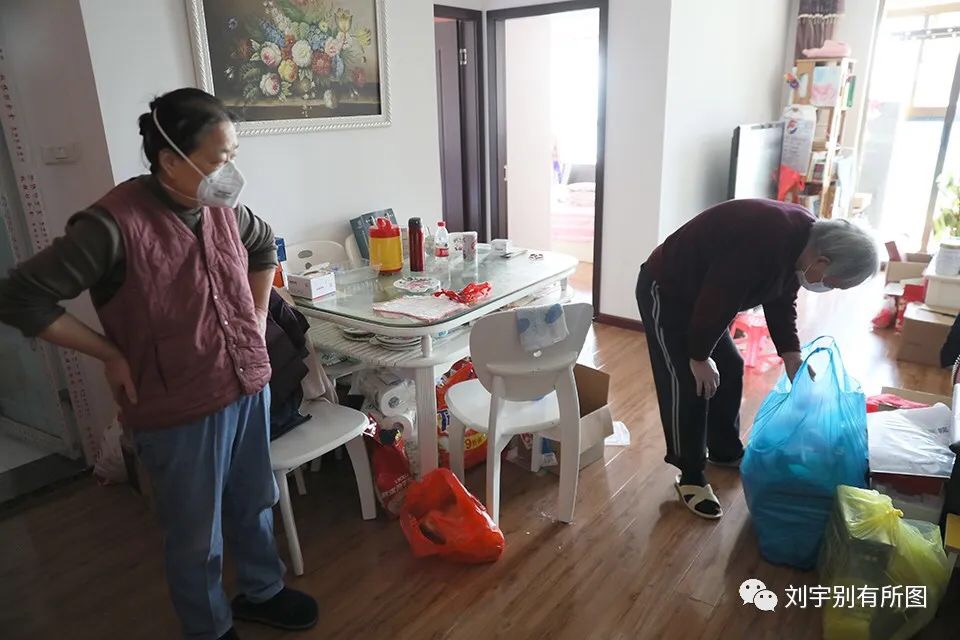
Tian unpacks his luggage
To 68-year-old Mr. Liang, surviving the virus was a "narrow escape." In late January, he went to the hospital to see if there were any left beds for his friend, and that was how he got the virus. His daughter rushed to see him when Liang was about to be sent to Huoshenshan makeshift hospital. Liang was diagnosed with lung cancer in 2006 and had his right lung removed. For him, COVID-19 could be especially fatal. Yet he eventually managed to defeat it.
Liang has a warm family. When I met with them, Liang was laughing over an exciting subject, looking nothing like someone who had recently got over a significant disease. "He is the eldest in the family," said Liang's sister. "We were so worried about him that we could not fall to sleep. But whenever we did video calls, we tried to put on cheering faces. He has been a good man throughout his life. I believe this is the work of good karma."
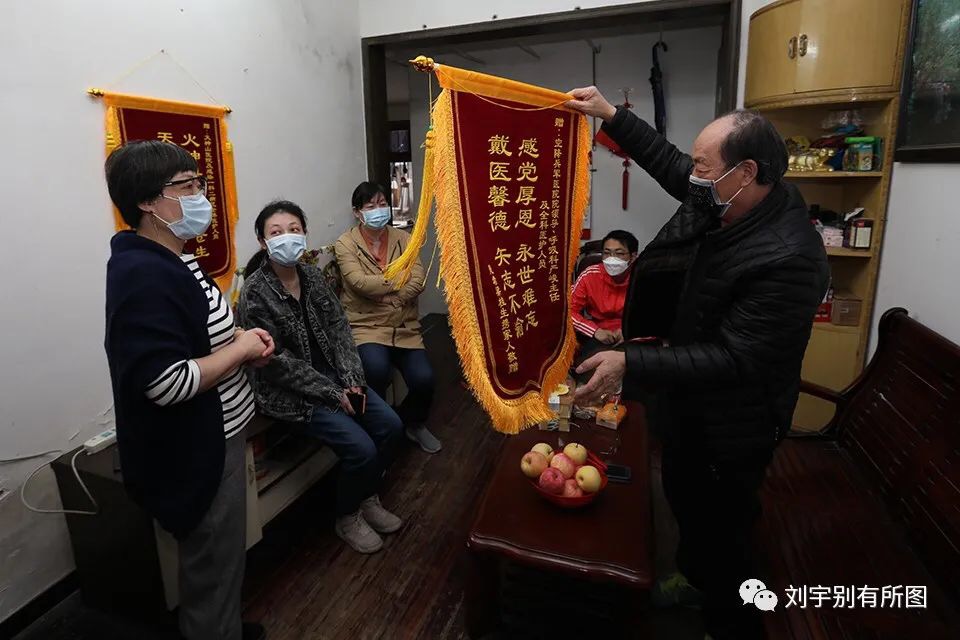
The silk banner Liang's family made to thank the hospital
The other day, my mother-in-law finally got back to Wuhan. She went to Beijing last December and had always been afraid of taking a walk outside, fearing people's reactions if they learned that she had come from the epicenter. Now the discrimination should finally come to an end. When I went to the train station to pick her up, I met Mr. Tang, who came to Wuhan to visit his parents. As we waited for the trains to come, his eight-year-old daughter kept kissing him on the face.
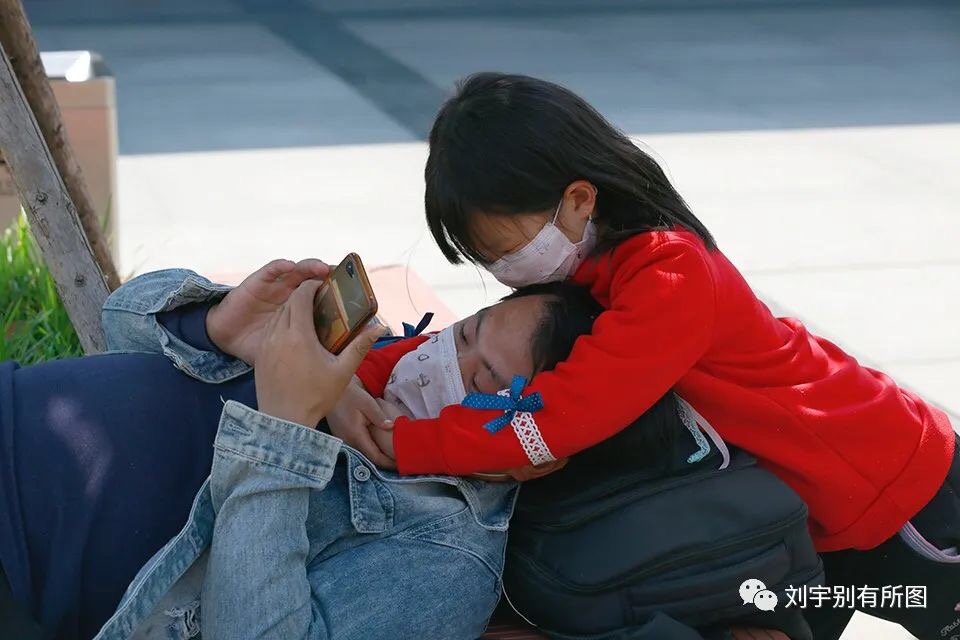
Tang's daughter kisses him on the face
Our photography team came back to Beijing last Saturday. Everything I have seen, heard, and experienced in Wuhan will stick with me for the rest of my life. I wasn't just doing photographing journalism. I was savoring and rethinking life.
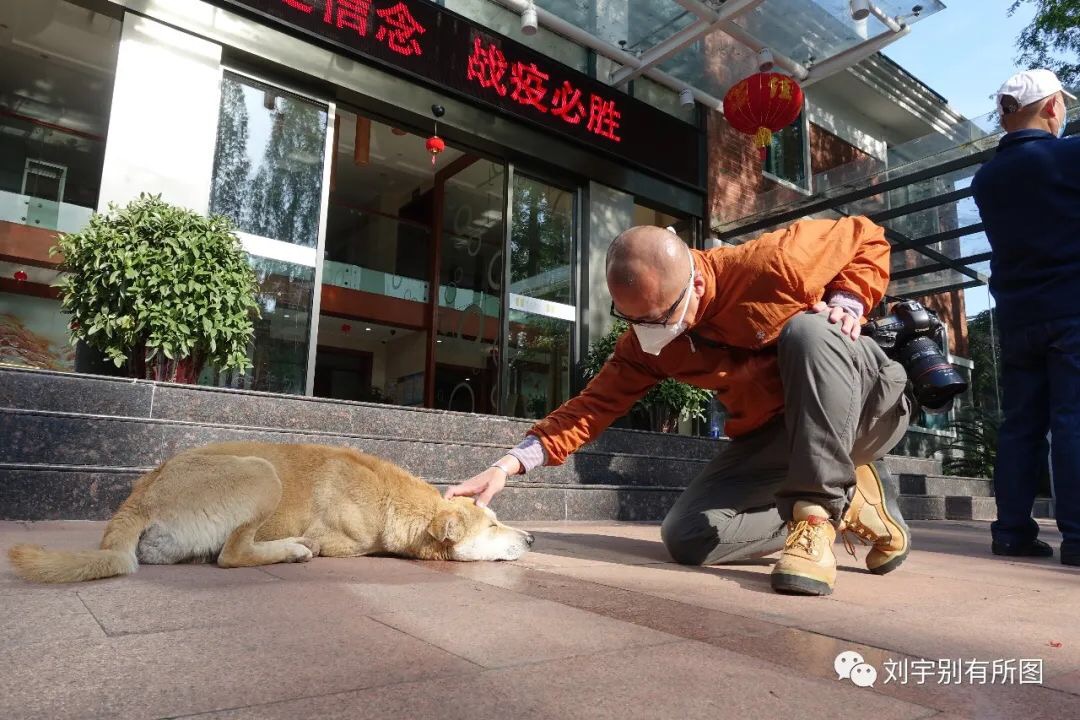
Duan Wei, Liu's fellow photographer, bids fare to a strayed dog living around their dorm
I guess I am the oldest in the team, but the age has not yet drained my passion. I appreciate the opportunity to pick up my cameras again as a retired photographer. I had the luck to come across during these days, including my readers online and people I talked to and journaled about in the diaries, are all treasures to me. They taught me that human hearts are not all that distant from each other. Sometimes, all we need is just a greeting.
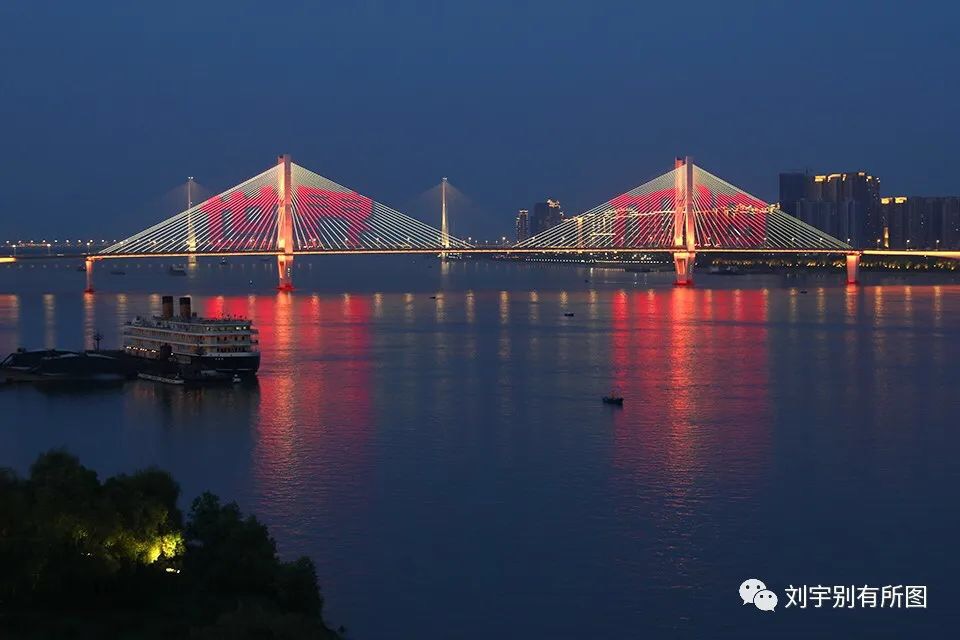
Wuhan's light show
Before departure, I got across the Yangtze River on the Wuhan Yangtze Bridge for the last time on this task. Cars were running past my window, and the buildings were tinted red by neon light. It made the past months feel like a dream. Duan Wei, my teammate, teared up at the scene.
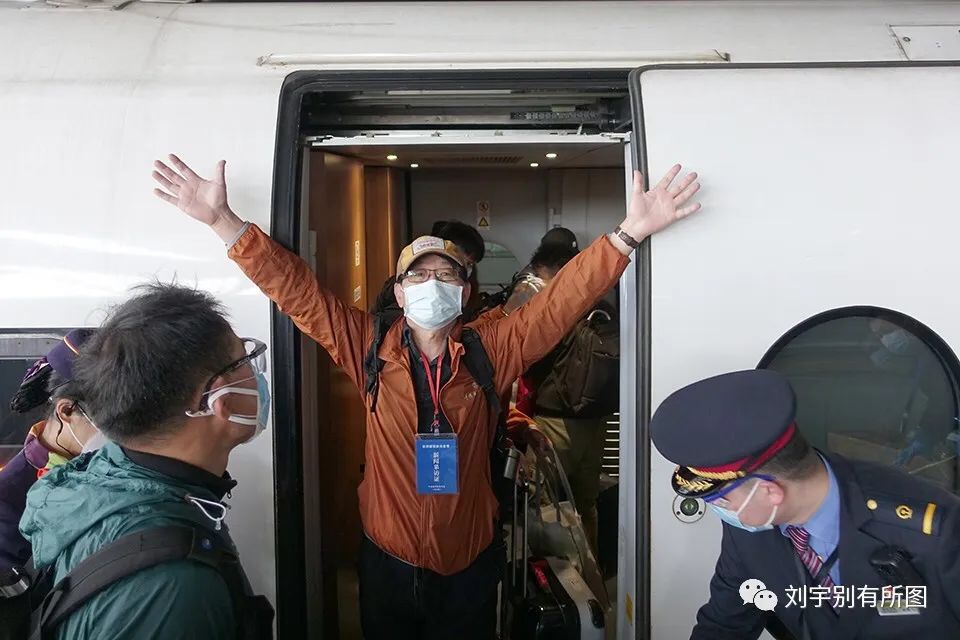
Liu embarks on the train back to Beijing
This diary should end my series about Wuhan. I started writing the journals in this city, and finish it in Beijing. The diary is the end of my series. But it is not to the story about the town and its significant restoration.
(Original story by Liu Yu; compiled by Wang Jinhong)


